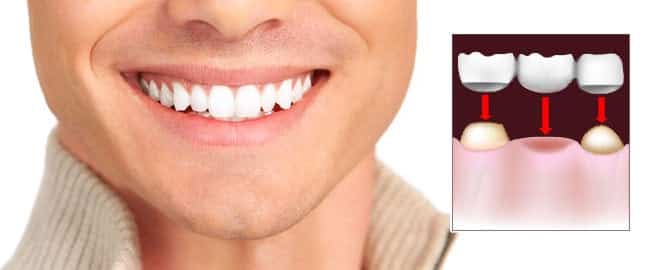A bridge does exactly what its name implies; it creates a bridge between two teeth. For patients with missing teeth, a bridge can be just the solution.
A bridge can ensure your smile stays bright, it can help maintain a healthy bite and can make it easier to eat.
When a tooth is missing, teeth can naturally shift toward that empty space. A bridge can prevent any teeth shifting that might occur. A dental implant bridge will also protect the shape of your face from changes that missing teeth can create.
Bridgework can be a vital tool to address health care problems that can arise from a missing tooth.
Here are few frequently asked questions about dental bridges.
Will it be difficult to eat with a dental bridge?
Replacing missing teeth should actually make eating less difficult. However, while you’re still adapting to a bridge you should eat soft foods that have been cut into small pieces.
Will the dental bridge change how I speak?
Replacing the missing teeth in your mouth will help you speak more clearly because your teeth will be in the proper position. So it may alter the way you speak, however, it will be for the better because missing teeth makes it difficult to be understood in some cases.
How do I care for my bridges?
It is important to keep your remaining teeth healthy and strong as the success of the bridge depends on the solid foundation of the surrounding teeth. Brushing twice a day and flossing daily helps prevent tooth decay and gum disease that can lead to tooth loss. Your dentist or dental hygienist can demonstrate how to properly brush and floss your teeth. Keeping a regular professional cleaning schedule will help find dental problems early when treatment can be more successful. Eating a balanced diet (more fruits, vegetables and fiber than meats) is important for general body health and oral health.
